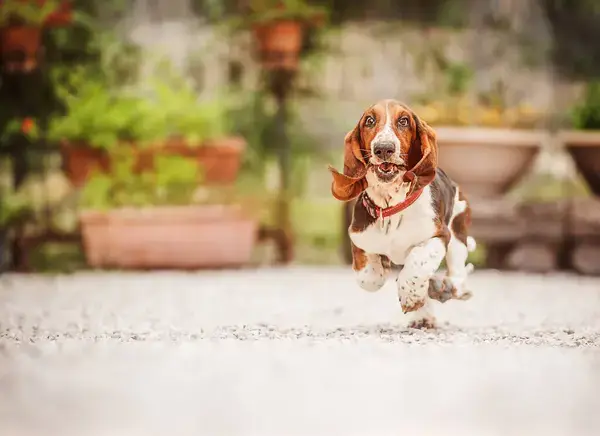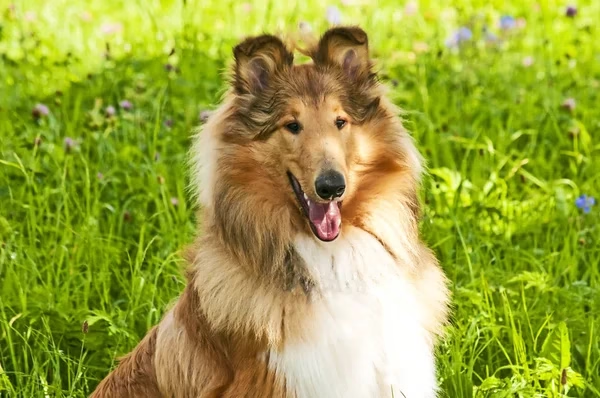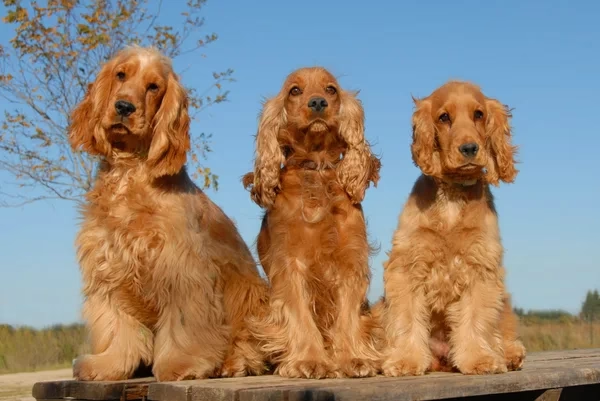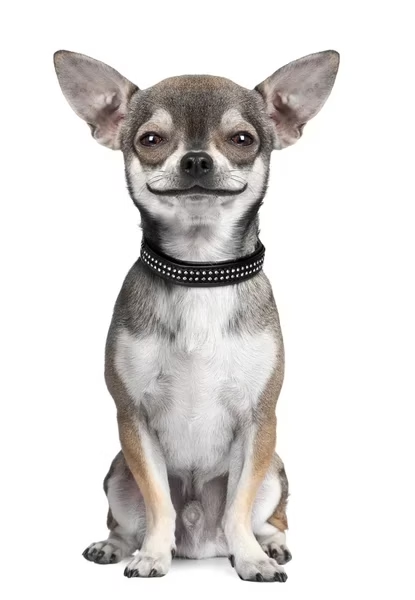Introduction: Meet the Basset Hound

The Basset Hound is a lovable breed best known for its long ears, droopy eyes, and remarkable sense of smell. Originally bred in France for tracking small game, the Basset Hound is a calm, affectionate, and loyal dog that adapts well to family life. With their gentle disposition and undeniable charm, Basset Hounds make excellent companions for a variety of households.
Breed Overview: Quick Facts About the Basset Hound
| Trait | Description |
|---|---|
| Origin | France |
| Group | Hound |
| Height | 13–15 inches (33–38 cm) |
| Weight | 40–65 lbs (18–29 kg) |
| Lifespan | 10–12 years |
| Coat | Short, smooth |
| Colors | Tri-color, lemon and white, red and white |
| Energy Level | Low to moderate |
| Trainability | Moderate |
| Good with Kids | Yes |
History and Purpose of the Basset Hound

The Basset Hound has its roots in France, where monks bred them to track small prey like rabbits. The name “Basset” derives from the French word bas, meaning “low,” which refers to their short legs. The breed gained popularity in England and later in the United States, where it became known for both its hunting ability and friendly personality. Today, Basset Hounds are more often found as loving family pets than on hunting trails.
Physical Traits of the Basset Hound
The Basset Hound has a distinct appearance: a long, heavy body, short legs, and a wrinkled face with expressive, sad-looking eyes. Their most iconic features are their:
- Long ears: Designed to stir up scent while tracking
- Powerful nose: Second only to the Bloodhound
- Loose skin: Especially around the face and neck
- Tail: Curved and carried upright, often with a white tip for visibility
Despite their somewhat comical look, Basset Hounds are strong and sturdy.
Temperament and Behavior of the Basset Hound
Calm and Laid-Back
Basset Hounds are known for their easygoing and gentle nature. They’re not hyper or overly demanding, making them a great choice for laid-back households.
Social and Affectionate
These dogs form strong bonds with their families and are generally good with children and other pets. They enjoy being part of the action, even if it’s just lying at your feet.
Stubborn but Sweet
Training a Basset Hound requires patience. While intelligent, they’re also independent and can be stubborn—especially when following a scent.
Is the Basset Hound Right for You?
Ideal Home Environment
Basset Hounds are suited for both apartment living and houses with yards. However, they can be prone to weight gain and need regular walks.
Best Suited For:
- Families with children
- First-time dog owners
- People looking for a mellow companion
- Those okay with some drool and shedding
Training and Socialization Needs
Though not the easiest breed to train, Basset Hounds respond well to positive reinforcement.
Training Tips:
- Keep training sessions short and rewarding
- Use treats and praise generously
- Socialize early with people and pets
Be mindful of their powerful nose—once they catch a scent, it’s hard to redirect them.
Grooming and General Care
Basset Hounds are relatively low-maintenance, but some areas require special attention.
Grooming Needs:
- Brushing: 1–2 times a week
- Ears: Clean regularly to prevent infections
- Bathing: As needed
- Teeth & nails: Routine dental care and monthly trims
Their loose skin and droopy features can trap moisture and dirt, so hygiene is key.
Health Considerations
Like many purebred dogs, Basset Hounds can be prone to certain health issues.
Common Health Issues:
- Ear infections (due to long ears)
- Obesity (they love food!)
- Hip and elbow dysplasia
- Intervertebral Disc Disease (IVDD)
- Eye issues (like entropion or glaucoma)
Prevention Tips:
- Feed a balanced diet and avoid overfeeding
- Provide daily exercise
- Buy from reputable breeders who test for genetic problems
Exercise Requirements
Although they appear lazy, Basset Hounds still need daily activity to stay healthy and prevent obesity.
Exercise Ideas:
- 30–60 minutes of walking per day
- Nose work games or puzzle toys
- Short hikes (watch for joint strain)
- Supervised playtime with other dogs
Pros and Cons of the Basset Hound
| Pros | Cons |
|---|---|
| Calm and gentle nature | Can be stubborn during training |
| Good with kids and other pets | Prone to ear infections and weight gain |
| Doesn’t need excessive exercise | Sheds and drools |
| Adaptable to various living spaces | May howl or bay loudly |
Fun Facts About the Basset Hound
- Basset Hounds have around 220 million scent receptors—nearly as many as Bloodhounds.
- Elvis Presley featured a Basset Hound in his performance of “Hound Dog.”
- Their long ears actually help trap scent particles near the nose while tracking.
- Bassets can bark and howl in a deep, expressive tone.
Final Thoughts: Is the Basset Hound the Right Choice?
The Basset Hound is a charming, mellow, and affectionate breed that suits families, singles, and seniors alike. Their laid-back personality and loving nature make them wonderful companions for those seeking a less demanding dog.
However, they do need regular care, training, and a bit of patience. If you’re okay with their quirks (and maybe a little drool), a Basset Hound might just be your perfect pet.
👉 Looking for more pet guides? Check out our post on how to choose the right pet for your lifestyle.
👉 For official breed details, visit the Basset Hound breed page on the AKC website.







